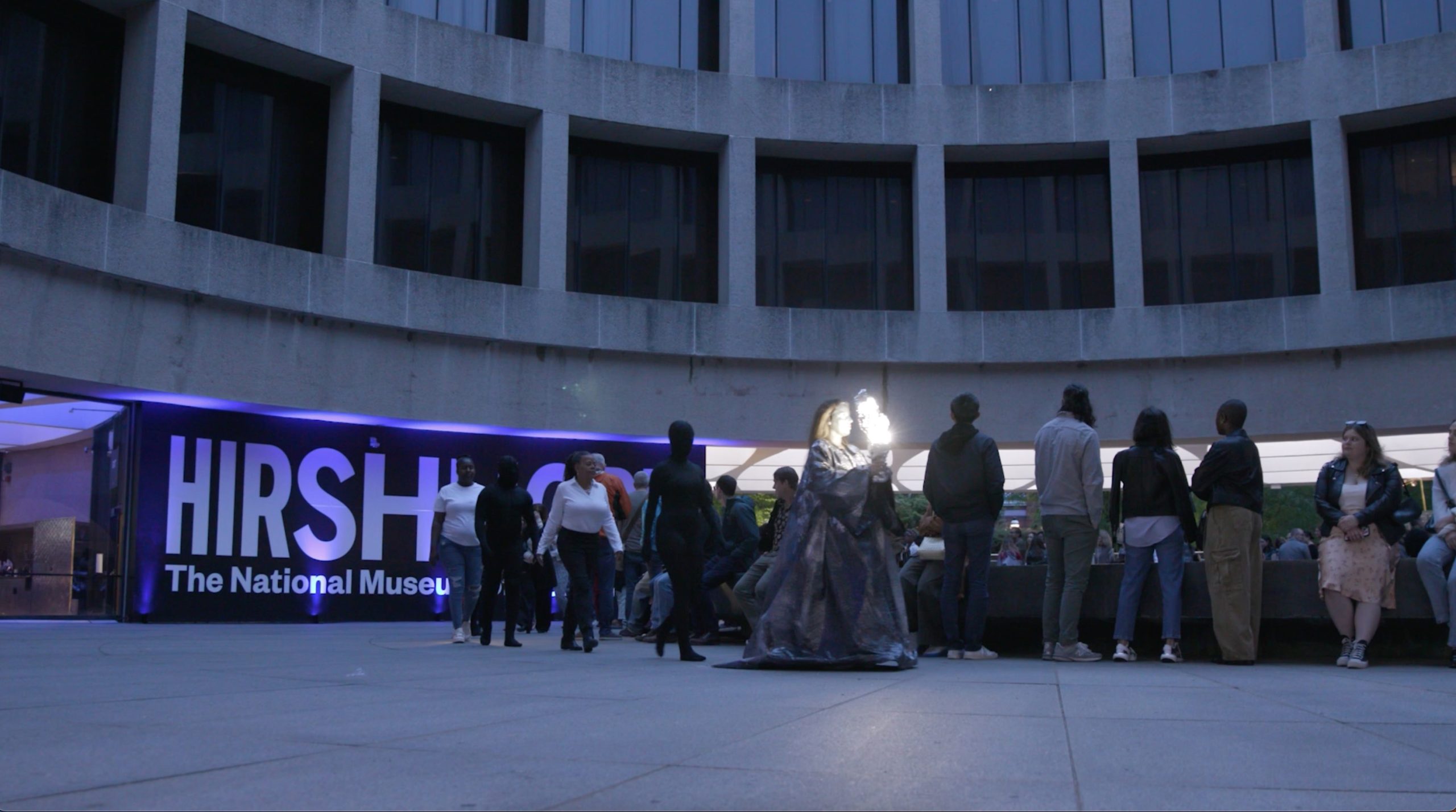Since it’s installation at the Museum in October 2021, DeVille’s makeshift liberty torch has inspired reflection upon the relationship between this Nation’s ideals and its actions and encouraged the metaphor of light itself as both connective tissue and uplifting force. A sunrise performance by DeVille marked the sculpture’s arrival on the Mall with a call to light and to liberty; after the sculpture’s departure DeVille now considers light in its relationship to darkness and how it can serve as a metaphor for the how slaves were erased from history. More than a hundred years before the Statue of Liberty was commissioned, for example, illumination laws such as “A Law for Regulating Negroes and Slaves in the Night Time” were passed in New York, stating that: “If any such Negro, Mulatto or Indian Slave or Slaves, as aforesaid, shall be found in any of the Streets of this City, or in any other Place, on the South side of the Fresh-Water, in the Night-time, above one hour after Sun-set, without a Lanthorn and lighted Candle in it, so as the light thereof may be plainly seen . . . then and in such case, it shall and may be lawful for any of his Majesty’s Subjects within the said City to apprehend such Slave or Slaves.” By law, failure to go unilluminated upon city streets during this time was illegal for any person of color. As a result, a carried torch of fire, presented as an American icon of Freedom, carried a double and oppositional meaning for an arm attached to a Black person: the policing of bodies for capture and re-enslavement. This and other histories have been excluded from history textbooks and stories about the Founding Fathers.
With her performance, DeVille calls citizens to contemplate this history through the lens of a participatory performance focused on the theme of illumination and a tribute to the slaves who have played a significant role in the foundation of our country. Visitors will come together to collectively create sound and light as the sun sets over the National Mall.
Her performance is inspired by The Invisibles: The Untold Stories of African American Slaves in the White House, which chronicles the African Americans who were intimately involved in the founding of America and its capitol.
With support, this performance will feature a musical contribution by internationally acclaimed musician Meshell Ndegeocello and her band, as well as a participatory light experience. DeVille is also in conversation with descendants of the individuals featured in The Invisibles to invite them to bear witness to their ancestor’s names being spoken and honored on the National Mall for possibly the first time.

